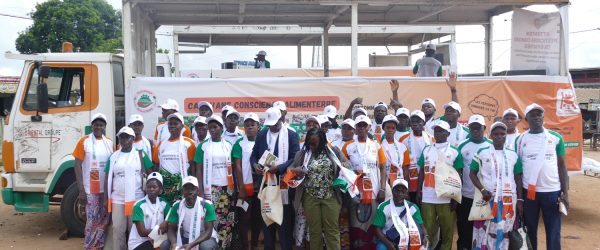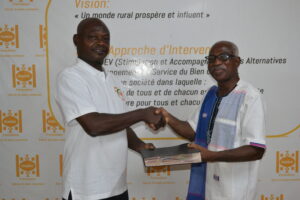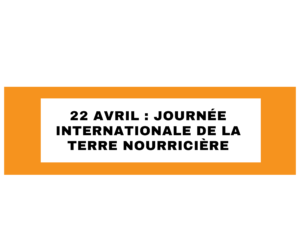To raise awareness among the people of Bouaké of the dangers posed by synthetic chemical pesticides in agriculture, and to celebrate the International Year of the Millet, Inades-Formation organised an awareness-raising caravan and a sports tournament that involved several hundred people.
The objectives of the International Year of the Millet, celebrated in 2023, are in many respects in line with those of the AlimenTERRE Conscience campaign run by Inades-Formation for the right to healthy food, as well as its actions to promote sovereignty foodstuffs (local foodstuffs).
Also, to mark the International Year of the Millet and to raise awareness of the AlimenTERRE Conscience, Inades-Formation has organised, on 27 and 28 October 2023, an AlimenTERRE Conscience Maracana caravan and sports tournament in the town of Bouaké, in the centre of Côte d’Ivoire.
Producers from Panafci-Région du Gbêkê member organisations, teams from the General Secretariat and Inades-Formation Côte d’Ivoire were mobilised for this caravan, which criss-crossed the town and the markets.
Inades-Formation’s “Conscience AlimenTERRE Campaign” aims to raise public awareness of the risks of using synthetic chemical pesticides in agriculture, with a view to a vast active social movement to change practices and behaviour that respect health and the environment, a prerequisite for producing without destroying and contributing to the right to healthy and sustainable food. It also calls for the strengthening of mechanisms for more rigorous regulation of the synthetic chemical pesticide sector, and the adoption of measures to reduce their use in favour of agro-ecological solutions.
“Producing without destroying is a civic duty” was the theme at the heart of the awareness-raising caravan and maracana[1] tournament organised in the town of Bouaké.
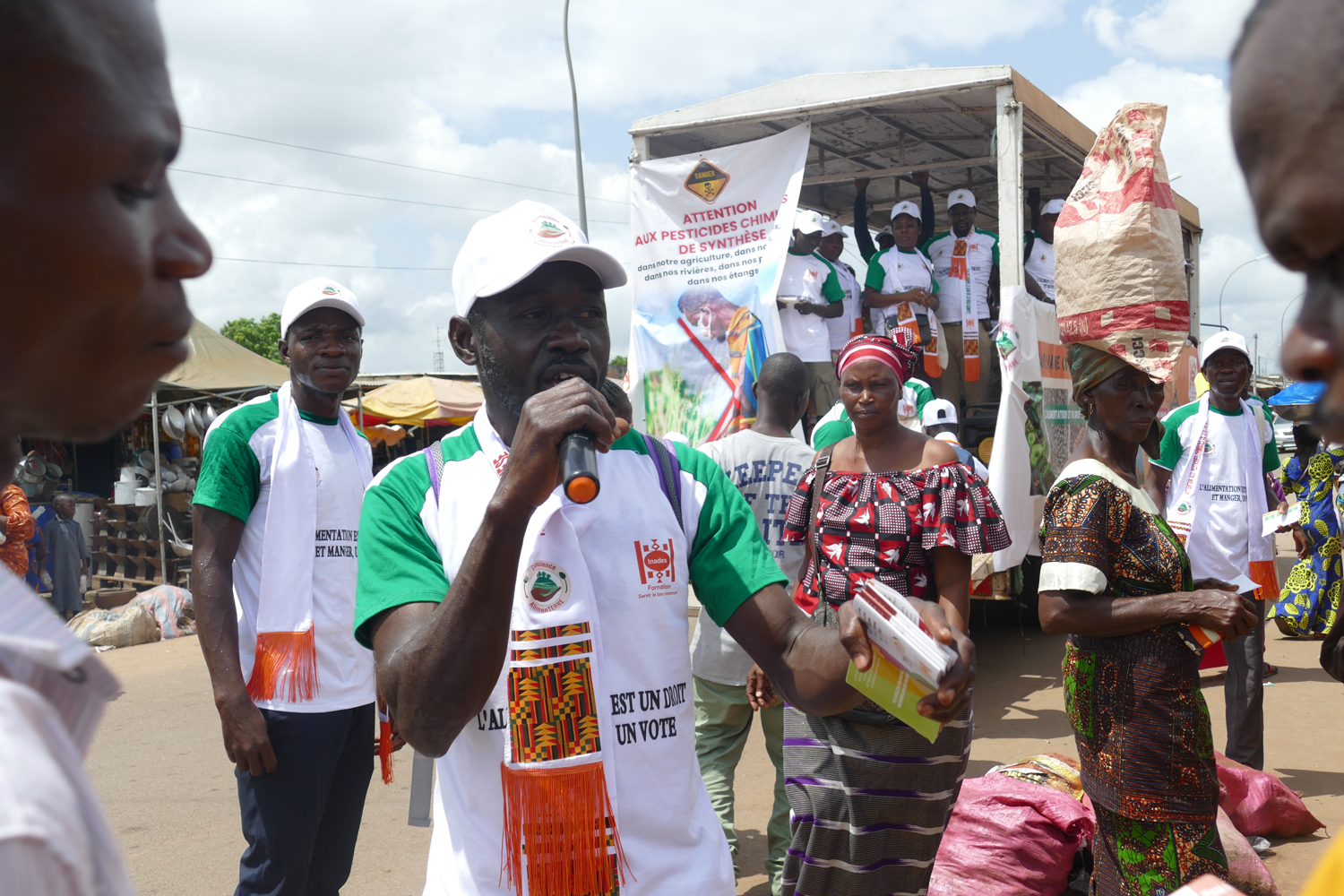
The aim of these two activities was to raise public awareness of the dangers to biodiversity and health posed by the use of synthetic chemical pesticides in agriculture, given their toxicity. The aim was to make farmers and consumers aware of their responsibilities and encourage them to adopt farming practices and eating habits that promote the right to healthy food and respect for the environment – in short, “produce without destroying”.
A study carried out in 2022 by Inades-Formation in Burkina Faso, Togo and Côte d’Ivoire shows that there are major challenges to be met in terms of managing synthetic chemical pesticides, practices and products that respect the environment and the health of farmers, agricultural workers and consumers.
According to Mrs ZIE Pauline, Director of Inades-Formation Côte d’Ivoire: “At the end of this awareness-raising campaign, it is to see the population really becoming aware of the dangers of synthetic chemical pesticides. She also hoped to see producers change their behaviour and try to gradually adopt agro-ecological practices by reducing the use of chemicals in agriculture, because the health of farmers, consumers and the protection of the environment are at stake.
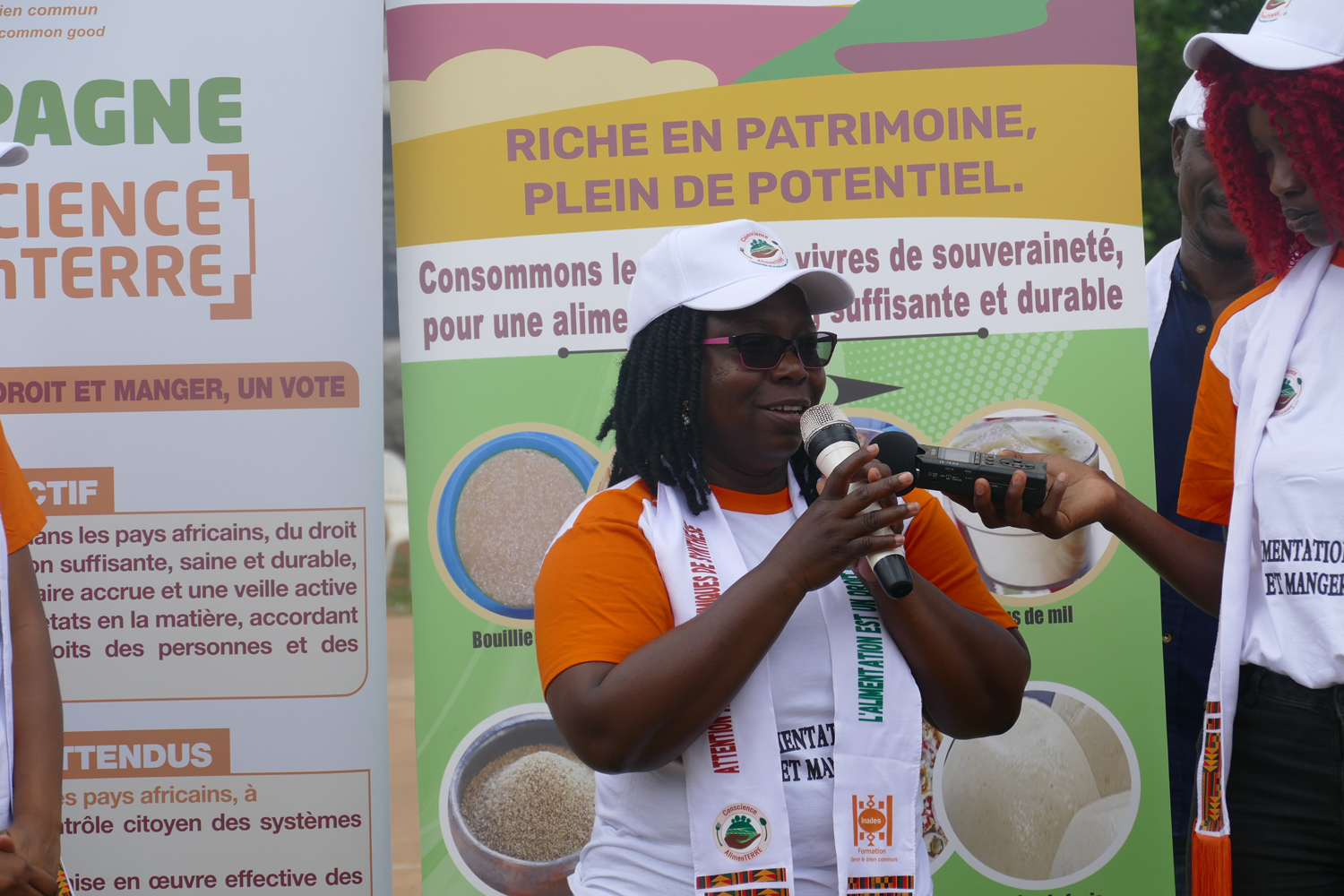
BARIDOMO Pascal, Advocacy Officer at the General Secretariat of Inades-Formation, said: “The town of Bouaké was chosen as a pilot project because the Gbêkê region is one of the areas where pesticides are used a lot, and the centre of Bouaké because to change behaviour, we need to act not only on farmers but also on consumers. The day consumers start questioning the quality of the food they are offered, they will also influence the quality of production. In this caravan, we were keen to invite delegates from the various departments representing farmers, the caravaneers who are involved in this activity, and we are going to visit markets and places where the general public is present, so that everyone can be informed about how to produce without destroying, how to have healthy, sustainable food and how to deal with the issue of pesticides, which affects both farmers and consumers… Next year, the caravan will be extended to other regions ….”.
![]()
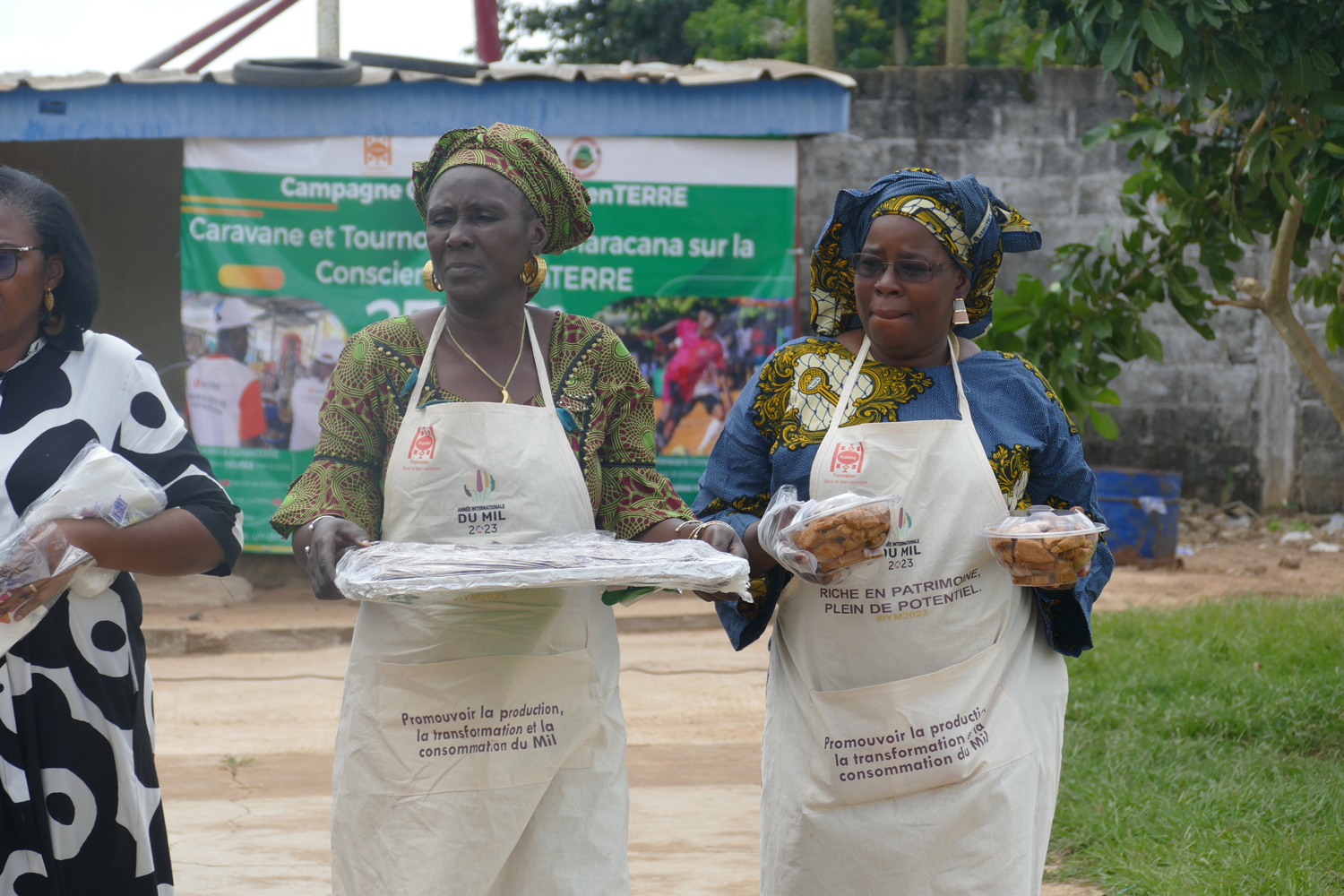
Raising awareness about pesticides was coupled with the celebration of the International Year of Millet, in honour of which Inades-Formation organised a football tournament. Four (04) local Maracana teams took part in the tournament: the Amicale des Anciennes Gloires de Football de Bouaké, the Ami de Maracana de l’Habitat de la Caisse, the Université Alassane Ouattara de Bouaké and the Maracana Club de Bouaké. The event took place at the Henri Poincaré sports complex in Bouaké. The aim of this sporting initiative was to entertain the public while at the same time raising awareness of the Conscience AlimenTERRE campaign and local produce, particularly millet. During the tournament, a tasting session was organised to introduce participants to new culinary innovations (dishes and drinks) based on millet, sorghum and fonio.
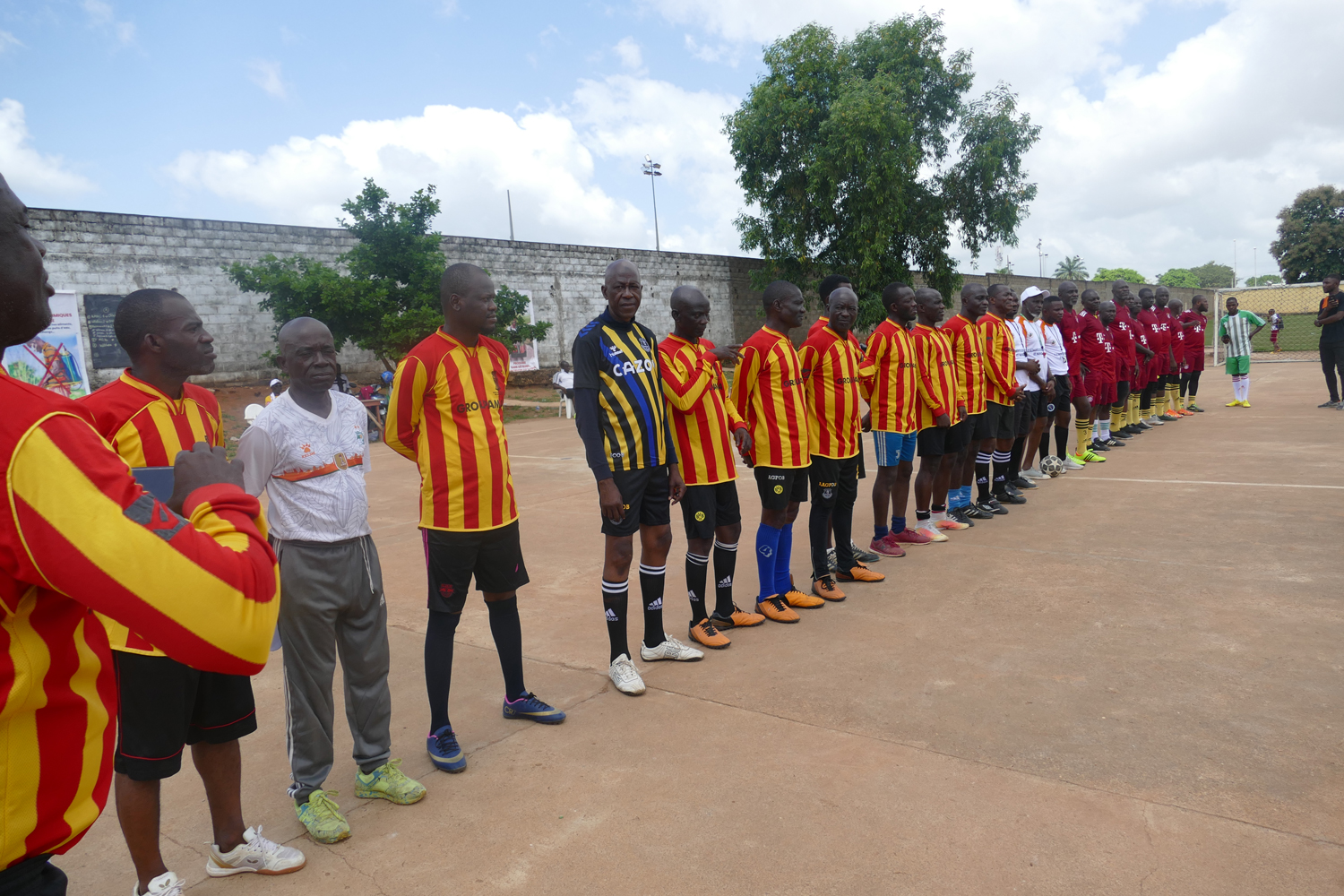
QUINTONOU Edgard, who took part in the Maracana tournament, said: “I’m 63 years old now, in my 64th year, and I still manage to play with my children, all of which is linked to the regular practice of sport and above all my diet. I think we should try to eat local food, including millet. If we could raise awareness among the population as a whole and let them know that millet has just as many qualities as wheat or maize, which others produce in large quantities, I think that would be a big step forward for Côte d’Ivoire.
The aim of the AlimenTERRE awareness campaign is to secure the adoption of measures to regulate the synthetic chemical pesticide sector more rigorously, to reduce their import and use, and to strengthen support for agro-ecology-based food systems.
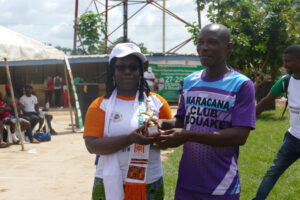

At the end of these activities, Mr Baridomo Pascal invited all the different players and participants (authorities, caravanners, footballers and the public, etc.) to be ambassadors to help lead the campaign against the use of synthetic chemical pesticides in agriculture.
[1] Popular football game in Côte d’Ivoire with special rules
Communication- General Secretariat

